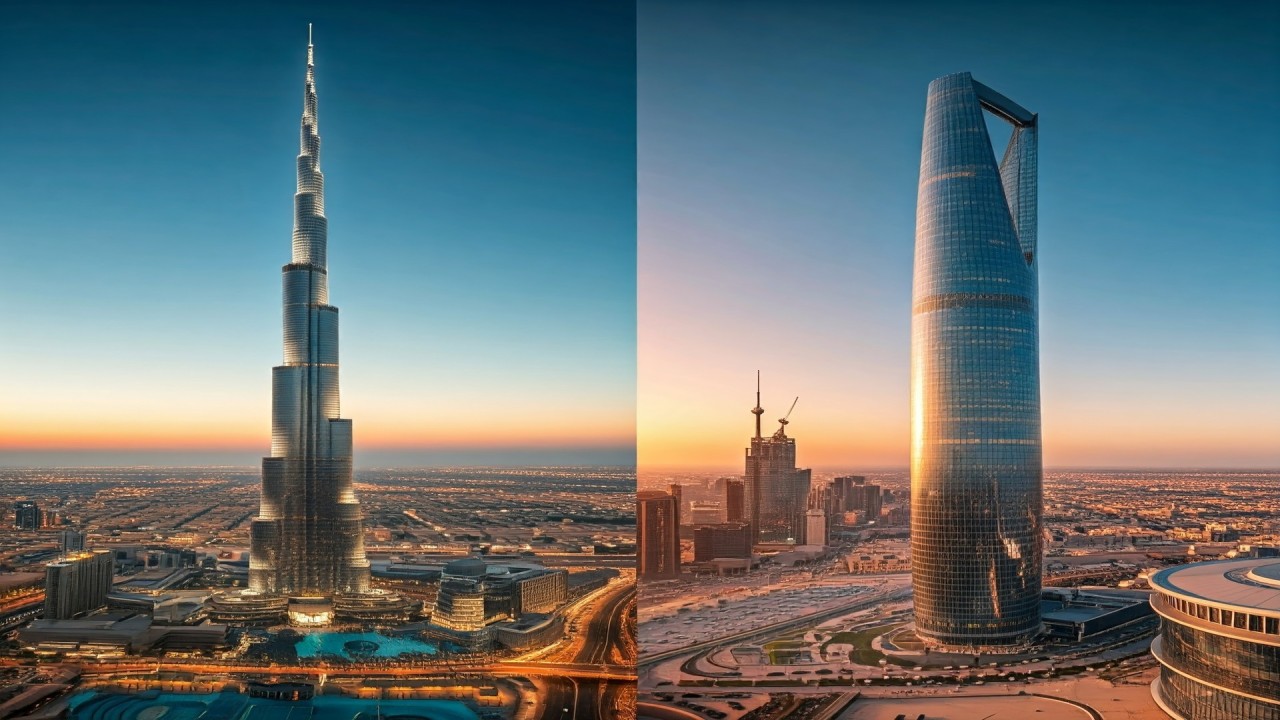Riyadh vs. Dubai: Gulf Giants Clash in Battle for Regional Business Supremacy
A high-stakes economic rivalry is intensifying across the Arabian Peninsula, as Saudi Arabia and the United Arab Emirates (UAE) engage in a fierce competition to establish themselves as the undisputed business hub of the Middle East.
For decades, the glittering skyline of Dubai has symbolized the region’s commercial prowess, attracting multinational corporations with its liberal economy and world-class infrastructure. However, the winds are shifting, as Saudi Arabia, fueled by its ambitious “Vision 2030” plan, aggressively challenges the UAE’s long-held dominance.
The battleground is multifaceted, encompassing everything from attracting regional headquarters to securing foreign direct investment and developing cutting-edge infrastructure.
Saudi Arabia’s Bold Play:
Riyadh is making no secret of its intent to become the region’s premier business destination. A key tactic has been the implementation of policies designed to incentivize, and in some cases, mandate, that international companies establish their regional headquarters within the Kingdom. This move has directly challenged the UAE’s established position as the preferred base for many global firms.
“We are seeing a clear and deliberate strategy from Saudi Arabia to diversify its economy and attract foreign investment,” says regional economic analyst, Fatima Al-Sayed. “The ‘Vision 2030’ plan is not just rhetoric; it’s a blueprint for transformation.”
UAE’s Defensive Stance:
While acknowledging the growing competition, the UAE maintains that its established business ecosystem, diversified economy, and strategic location provide a significant advantage. Dubai, in particular, boasts a reputation as a global trade and logistics hub, with well-developed financial markets and a cosmopolitan workforce.
“The UAE has a proven track record of stability and innovation,” states a Dubai-based business executive, who requested anonymity. “We have built a strong foundation that will continue to attract businesses and investors.”
Key Areas of Contention:
- Regional Headquarters: Saudi Arabia’s push for RHQs has created a noticeable shift in the regional business landscape.
- Foreign Direct Investment: Both nations are actively courting FDI, with massive infrastructure projects and economic diversification initiatives.
- Logistics and Infrastructure: Investments in ports, airports, and transportation networks are crucial to both countries’ ambitions.
- Tourism and Entertainment: Both countries are investing heavily in these sectors to attract visitors and diversify their economies.
The Impact:
This intense competition is undeniably driving economic growth across the region. However, it also raises questions about potential shifts in regional business patterns and the long-term implications for both Saudi Arabia and the UAE.
“This competition is ultimately beneficial for the region,” says Al-Sayed. “It’s forcing both countries to innovate and improve their business environments.”
The outcome of this economic duel remains to be seen, but one thing is certain: the race to become the Middle East’s dominant business hub is well underway.





